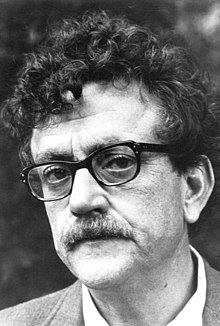 | Draft article not currently submitted for review.
This is a draft Articles for creation (AfC) submission. It is not currently pending review. While there are no deadlines, abandoned drafts may be deleted after six months. To edit the draft click on the "Edit" tab at the top of the window. To be accepted, a draft should:
It is strongly discouraged to write about yourself, your business or employer. If you do so, you must declare it. Where to get help
How to improve a draft
You can also browse Wikipedia:Featured articles and Wikipedia:Good articles to find examples of Wikipedia's best writing on topics similar to your proposed article. Improving your odds of a speedy review To improve your odds of a faster review, tag your draft with relevant WikiProject tags using the button below. This will let reviewers know a new draft has been submitted in their area of interest. For instance, if you wrote about a female astronomer, you would want to add the Biography, Astronomy, and Women scientists tags. Editor resources
Last edited by Citation bot (talk | contribs) 2 months ago. (Update) |
Conversations with Kurt Vonnegut is a compilation of interviews with the American author Kurt Vonnegut, edited by William Rodney Allen. It was first published in 1988 by the University Press of Mississippi as part of their Literary Conversations Series. The book provides insights into Vonnegut's thoughts on his works, writing process, and views on contemporary society.
Content
editThe book includes a series of interviews conducted over several decades, highlighting Vonnegut's perspectives on various topics, including his literary works, personal beliefs, and cultural commentary. Interviews cover significant periods of Vonnegut's career, offering readers a comprehensive look at his evolution as a writer and public intellectual. Key topics discussed in the interviews include Vonnegut’s experiences during World War II, which heavily influenced his writing, particularly in works like Slaughterhouse-Five.[1]
Notable works such as Cat's Cradle, Breakfast of Champions, and The Sirens of Titan are frequently discussed, providing deeper context into Vonnegut’s approach to satire and his critique of human folly.[2]
Notable Interviews
editSome notable interviews featured in the book include:
- A 1973 interview from The Paris Review where Vonnegut delves into his writing process and the themes of his novels.[3]
- A 1980 interview with Rolling Stone where Vonnegut expresses his disillusionment with political and social issues of the time.[4]
- Discussions about existentialism and the absurdity of life, which are recurrent themes in Vonnegut's work.[5]
- The interview with Robert Scholes from "The Vonnegut Statement," edited by Jerome Klinkowitz and John Somer, stands out for its deep engagement with Vonnegut’s broader philosophical outlook, making it a critical component of the volume.[6]
Reception
editConversations with Kurt Vonnegut received positive reviews for its insightful portrayal of Vonnegut's wit and intellect. Critics have praised the book for offering a closer look at Vonnegut's thoughts and the consistency of his worldview across different stages of his career. It has been described as an essential read for fans and scholars interested in Vonnegut's work.[7] According to a review on Project MUSE, the book presents a fresh approach that situates Vonnegut as a significant literary figure, despite the fluctuations in his popularity over the years, capturing his authentic voice and providing a nearly autobiographical portrayal through the interviews.[8]
Legacy
editThe book serves as a valuable resource for understanding Vonnegut’s influence on American literature and his lasting legacy as a commentator on human nature and societal issues. A collection of essays in "New Critical Essays on Kurt Vonnegut" highlights the continuing relevance of Vonnegut’s work, examining his narrative structures, themes of war and altruism, and his connection to both past and contemporary literary landscapes.[9] Additionally, "Conversations with Kurt Vonnegut" is available for free on the Internet Archive, providing an accessible resource for both academic and casual readers.[10]
See also
editReferences
edit- ^ Shields, Charles J. (2011). And So It Goes: Kurt Vonnegut: A Life. Henry Holt and Co. p. 142. ISBN 978-0805086935.
- ^ Allen, William Rodney (1988). Conversations with Kurt Vonnegut. University Press of Mississippi. ISBN 978-0878053419.
{{cite book}}: Check|isbn=value: checksum (help) - ^ Vonnegut, Kurt (Spring 1977). "The Art of Fiction No. 64". The Paris Review (69).
- ^ Vonnegut, Kurt (December 1980). "Kurt Vonnegut Sees the Future". Rolling Stone.
- ^ Klinkowitz, Jerome (2009). Kurt Vonnegut's America. University of South Carolina Press. ISBN 978-1570038472.
{{cite book}}: Check|isbn=value: checksum (help) - ^ Klinkowitz, Jerome (1988). The Vonnegut Statement. University Press of Mississippi.
- ^ Booker, M. Keith (2009). The Science Fiction Handbook. John Wiley & Sons. ISBN 978-1405162050.
{{cite book}}: Unknown parameter|coauthors=ignored (|author=suggested) (help) - ^ "Conversations with Kurt Vonnegut". Project MUSE. 2009. Retrieved 2024-09-08.
- ^ New Critical Essays on Kurt Vonnegut. SpringerLink. 2020. Retrieved 2024-09-08.
- ^ "Conversations with Kurt Vonnegut". Internet Archive. 1988. Retrieved 2024-09-08.
External links
edit- Conversations with Kurt Vonnegut at the University Press of Mississippi
- Conversations with Kurt Vonnegut on Goodreads
- Conversations with Kurt Vonnegut on Internet Archive
